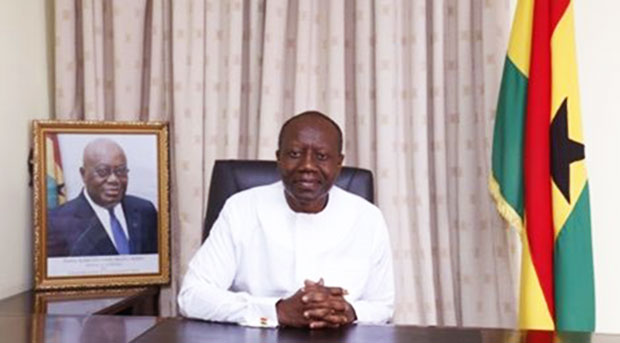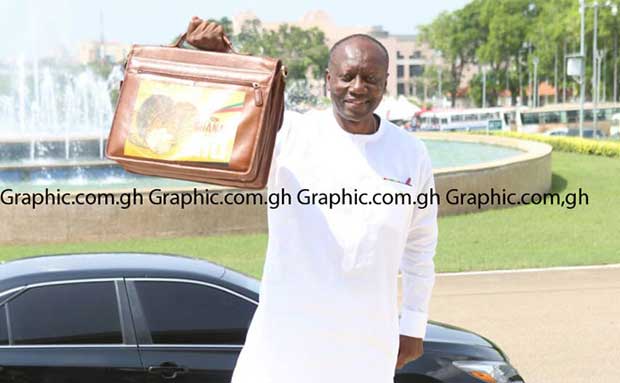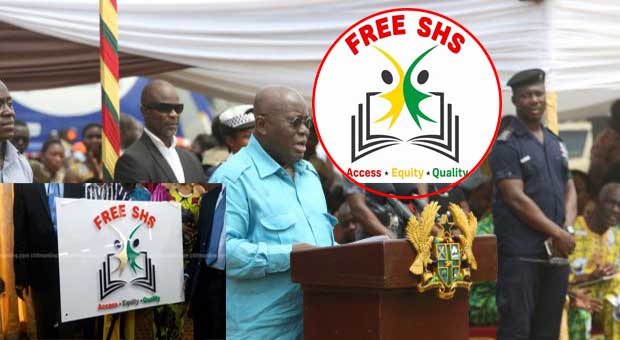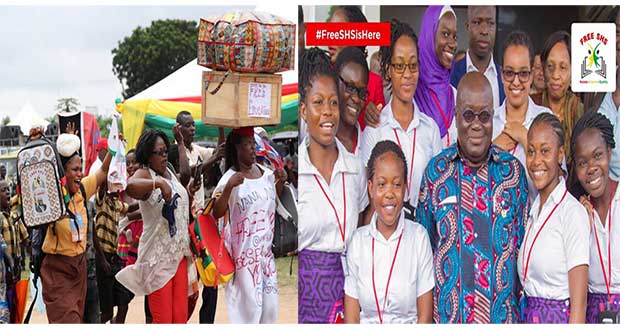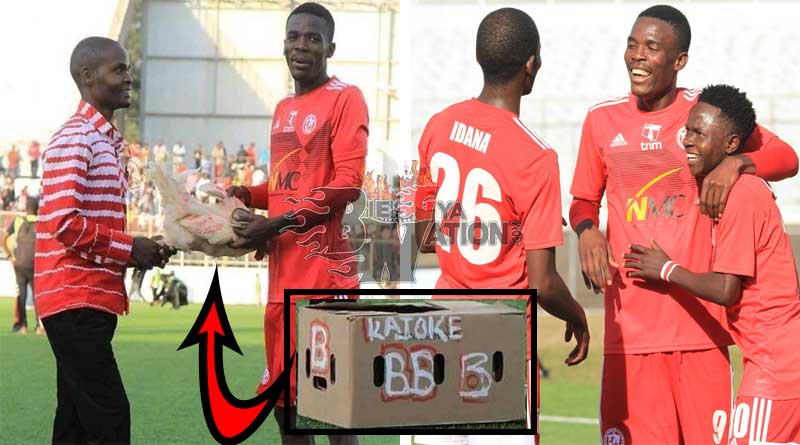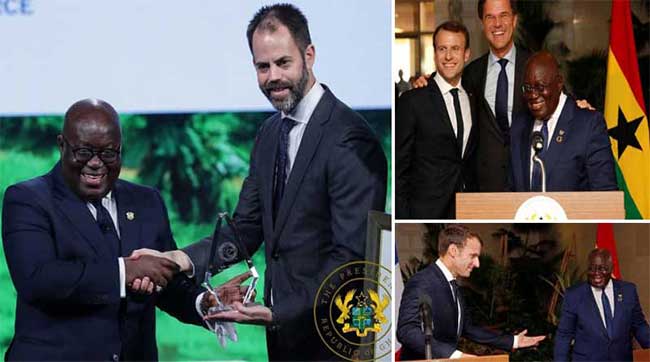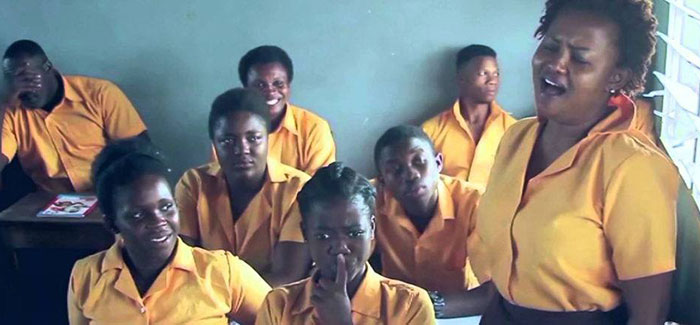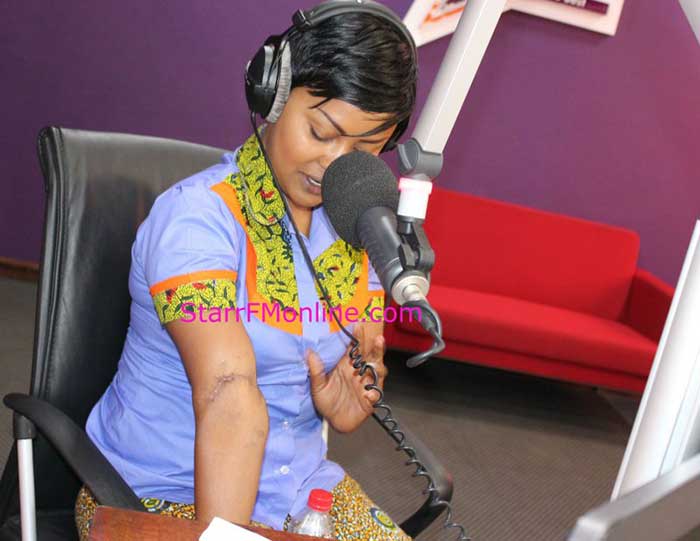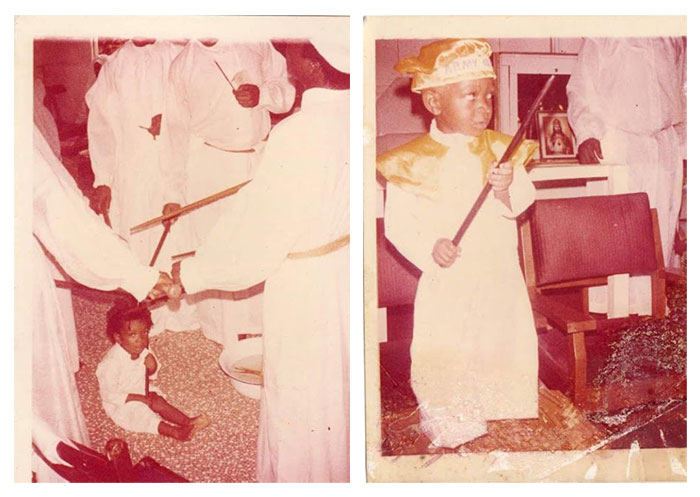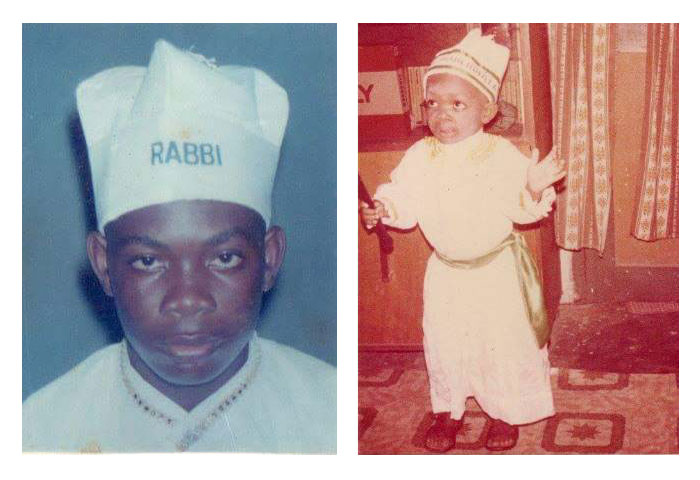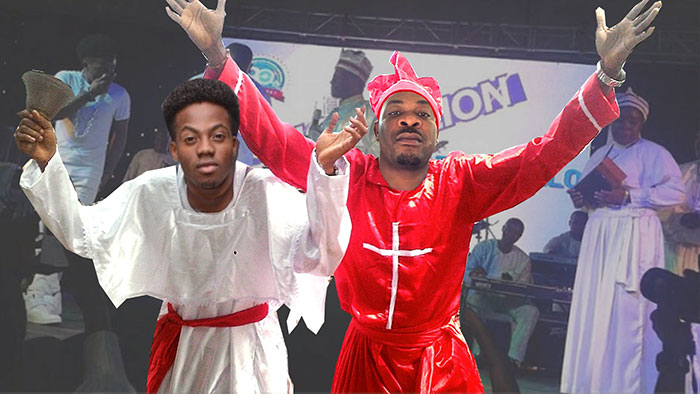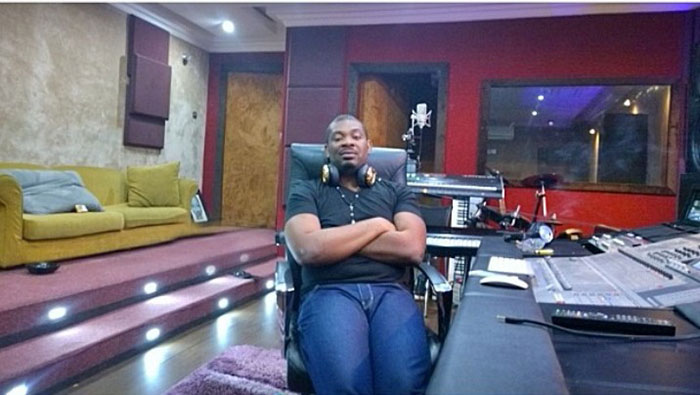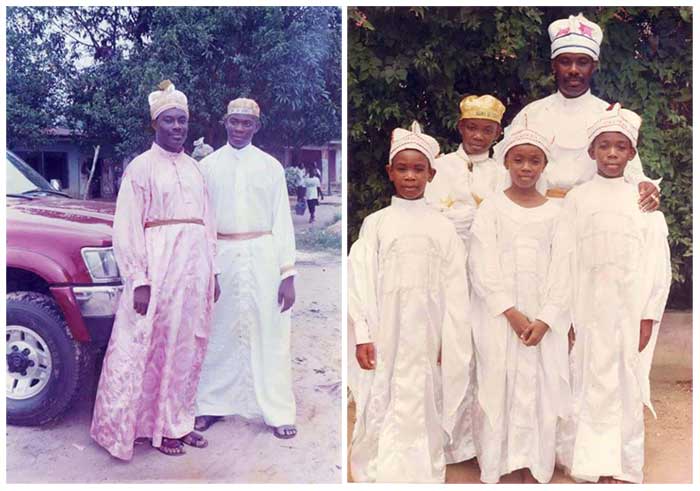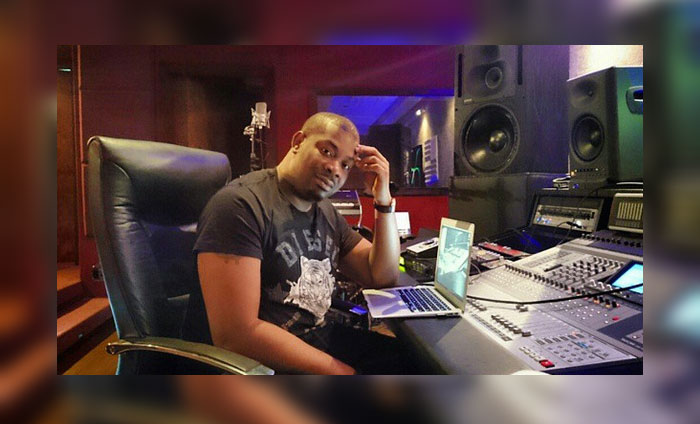Politics
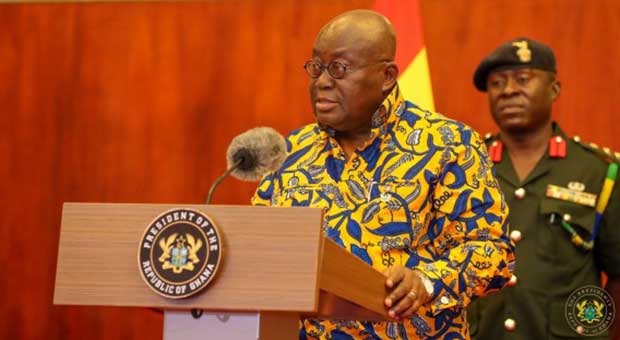
- Wajaja King
- Category: Politics
- Tuesday, 18 July 2017 19:12
Read the Full Text of President Akufo-Addo’s statement at 1st media encounter in Accra...
INTRODUCTORY STATEMENT BY THE PRESIDENT OF THE REPUBLIC, NANA ADDO DANKWA AKUFO-ADDO, AT THE 1ST MEDIA ENCOUNTER, AT THE BANQUET HALL OF THE PRESIDENCY, ACCRA, ON TUESDAY, 18TH JULY, 2017
Let me welcome you all to the seat of the Presidency for this 1st media encounter since I came here. I must, at the outset, thank members of the media, particularly the presidential press corps, for the extent and depth of the coverage they have given to the activities of the Presidency these last six months. I cannot complain about the lack of exposure of my thoughts, statements or policies since I became President. And for that, I am grateful to the media and, as I say, particularly to members of the presidential press corps, whose duty it is to cover the President. They should know that their work is appreciated.
In so saying, I think it necessary also to record my delight at the vibrancy of the Ghanaian media. I know there are some who take issue with the media on several fronts, and even go so far as to criticise me for my part in the repeal of the Criminal Libel Law, for it made the media “too free”. Even though I have been one of the greatest victims of the irresponsible section of the media, i.e. those who have created an industry from spewing calumnies, falsehoods and outright fabrications against my person, I do not regret one bit my role in repealing that old, discredited law. The repeal has inspired the Ghanaian media to be one of the freest and most vibrant on the entire continent of Africa, if not in the world. I may not go as far as Thomas Jefferson when he said that “were it left to me to decide whether we should have a government without newspapers or newspapers without a government, I should not hesitate a moment to prefer the latter”, but I will say that I much prefer the noisy, boisterous, sometimes scurrilous media of today to the monotonous, praise-singing, sycophantic one of yesteryear. The Ghanaian media has, in fact, enriched the nation’s governance by its persistence, curiosity and investigative skills. Eleven days ago, 7th July, was exactly six months since I swore the oath of office as the 5th President of the 4th Republic.
Needless to say, it has been an eventful six months. But, apart from one or two brief encounters, I have not had a sustained, direct engagement with the media. I believe that, symbolically, this is a good time to do so. Hence my invitation for this occasion. It will enable me to share some of my thoughts on what has gone on, and allow you, members of the media, to express your concerns and questions, if any, for my response. It is my intention to have such encounters twice a year. On 7th December, 2016, Ghanaians went to the polls, and voted decisively for change. A change to advance the economic fortunes of this country and bring about improvements in their livelihoods. A change to eradicate the perception of widespread corruption in public life and enhance the quality of governance in our nation. A change to banish the spectre of national demoralisation and renew the spirit of confidence of the Ghanaian people. I said in my first Message on the State of the Nation that the times in which we live demand that all of us be in a conscious hurry to deal with the problems we face.
This was what has motivated my actions till now. Half-way into my first year in office, it is good to take stock of what has happened and the way forward. This forum is not intended to give another Message on the State of the Nation, neither is it to announce my achievements. It is guided, rather, by the principle of accountability. We, and I mean we, in government, and you, in the media, together, have a responsibility to bring the details of the governing process to the people of Ghana. They deserve to know what we are doing and why we are doing it, and how that would lead to the betterment of their lives. If the people are not kept informed or do not understand the activities of the government, then, we in government, and you in the media, are failing in our duties. My first important task was to assemble a team of quality, capable of working to overcome my government’s poor legacy, and setting Ghana on the path of progress and prosperity. By 12th April, the full central government was in place, in the fastest period of time in the history of the 4th Republic.
By common consent, so as not to be seen to be blowing my own trumpet, it is regarded as being composed of some of the best persons in public life today, men and women of achievement, experience, integrity and knowledge, together with youthful elements who are full of promise. By that date, the regional government was also in place, again, a strong representation of competence and integrity. I must, once more, thank the Legislature, the Parliament, for the expeditious, but responsible manner in which it exercised its constitutional power of approval of my nominees, notwithstanding the bizarre, incomprehensible episode of the non-existent bribery of members of Parliament’s Appointments Committee. The process of constituting local government is also now almost complete, with the nomination and approval of 208 out of 216 Metropolitan, Municipal and District Chief Executives. The remaining 8, hopefully, will soon be in office. Let me use this medium to thank the relevant Metropolitan, Municipal and District Assemblies for their vote of confidence in my nominees. I am confident that, on their part, they will work harmoniously with their Assemblies.
It is worth stressing that these MMDCEs will be the last batch to take office under the current system, if the constitutional proposals for reform are accepted and passed. We have to expand full democracy to local government. I knew that the biggest problem we would face on coming into office would be the economy, but I can safely say that I was still shocked at the state of affairs we found. A very competent Economic Management Team, with the brilliant Vice President, Aljahi Dr. Mahamudu Bawumia, in the chair, has initiated, with my support, measures to deal with the mess. Our desperate economic situation has meant that we have had to take some unorthodox, but brave measures. There was never any chance that this government, voted into office with a mandate for change, would dare to do things in the business as usual manner. The Asempa Budget that the highly respected Minister for Finance, Ken Ofori-Atta, presented in March set the tone for the new ways of doing things that will transform our economy. It also provided the opportunity to deliver on some of the promises we made during the election campaign. Nurses and teacher training allowances have been restored to take effect at the start of the new school year. Nuisance taxes have been abolished, and other measures have been taken to shift the focus of our economy from taxation to production.
The macroeconomic indices are beginning to show a turn for the better. The monetary policy rate (MPR) of the Bank of Ghana has been cut from 25.5 percent to 22.5 percent in the first half of the year. Inflation has gone down from 15.4% in December 2016 to 12.1% in June 2017, i.e. a period of six months, the lowest in four years. The benchmark 91-day Treasury Bill (T-bill) rate was 22.8 percent in January last year, and has narrowed to 11.9 percent in June 2017, the lowest in 5 years. We are encouraged by the gradual decline in the cost of borrowing and the increase in banks’ credit to the private sector by nearly 6 percent in the first quarter of 2017, compared to a decline of about 7 percent in the same period in 2016. But we have to continue to work to bring down the cost of borrowing to enable businesses to have access to much needed credit. It is my hope and expectation that these statistics will soon translate into tangible benefits in the lives of Ghanaians. We have also introduced a number of innovative interim packages to help, particularly, new entrepreneurs. I do not need to repeat that the greatest challenge we face is the creation of jobs. Young people are very anxious about not finding jobs, and their parents are even more anxious about the future of their children after seeing them through school.
I am well aware that the success or otherwise of my administration will be judged largely on job creation. Last Thursday, I launched the National Entrepreneurship and Innovations Plan (NEIP) which is an innovative scheme, under the Business Development Ministry, to help startups, and the difficult early stages of setting up businesses. We have committed $10 million of public funds, which we hope to leverage into $100 million from private sources to back the plan. The Asempa Budget has allocated an amount of $100 million dollars as Government contribution either as equity or in kind support for the establishment of the district enterprises, 1-District-1-Factory. An additional amount of $340 million has been leveraged from local financial institutions for the programme. Government, in collaboration with the Association of Ghana Industries, has also arranged a Suppliers Credit Facility for $2 billion from China to provide equipment, machinery and other facilities in support of the programme. It is now clear that this programme is destined to succeed. The Asempa Budget also provided a $50 million stimulus package for the revival of distressed companies. At the end of June 2017, 285 applications had been received. So far, 118 of these applications have been screened, of which 80 have been adjudged eligible for various stimulus packages. In addition to Government’s contribution, an amount of $20 million has been earmarked by local financial institutions as part of the stimulus package.
This will definitely help in the revival of our industrial sector under the dynamic leadership of the Minister for Trade and Industry, Alan Kyerematen. At this stage of our development, agriculture will necessarily have to provide the majority of the jobs, and that is why we have to pay urgent attention to the modernisation of our agricultural practices. Extension officers are being employed, for the first time in many years, to provide hands-on support to farmers, and we are generally paying extra attention to every stage of farming. The one-village-one-dam scheme is taking off in the three northern regions with the rehabilitation of the existing ones that are in sad states of disrepair. Planting for Food and Jobs, one of our flagship initiatives, has also started with increasing enthusiasm. The Programme has registered 185,000 farmers out of the 200,000 targeted; government is bearing 50% of the cost of fertiliser for farmers; and to date eighty thousand and thirty seven (80,037) tonnes of fertiliser have been distributed to farmers enrolled on the programme. Thirty five thousand seven hundred and forty seven (35,747) metric tonnes of seedlings have also been supplied to farmers. It is noteworthy that many of the suggestions for the 1-district-1-factory initiative are agriculture based, and that tells me that my many sermons on agriculture and food processing as the basis for our industrial take-off are finding many converts.
Over the years, several diseases such as the swollen shoot, black pod and mealy bugs have attacked our agriculture. The latest in the series is the fall army worm invasion, which is ravaging farmlands across Africa. Government is fully aware of the infestation. Our statistics indicate that it has affected one hundred and twelve thousand eight hundred and twelve (112,812) hectares of land. So far, fourteen thousand four hundred and twenty (14,420) hectares of land have been destroyed. In dealing with this menace, Government has mobilised support for farmers by supplying them with seventy two thousand seven hundred and seventy four (72,774) litres of insecticide. More are in the pipeline to confront effectively this scourge. In the six months of our being in office, easily the headline subject has been the fight against galamsey. I am glad that the majority of our compatriots have recognised the danger posed to the existence of our nation by the practice of galamsey.
As I have said before, since the Almighty has blessed our land with mineral resources, we cannot do without mining, and we have the right to exploit the minerals in our land. But we cannot and should not destroy our lands and water bodies and our environment in the search for gold and other minerals. I am grateful that the majority of people and you, the media, have lent their support to the campaign against galamsey. I am hoping that the programme to restore the degraded lands will attract the same enthusiasm. For my part, I will not relent in this struggle, nor will the Cabinet Committee, headed by that eminent Ghanaian, the Minister for Environment, Prof. Kwabena Frimpong Boateng, which is spearheading government’s efforts in this fight. Government’s plan to find funds to deal with the dramatic deficit in our infrastructure needs, has at its heart, the exploitation of our mineral wealth. The Vice President went to China, with a plan to leverage some of our bauxite deposits to raise money to tackle the programme for industrialisation and the building of roads and other infrastructure.
If proof were needed, this must surely be it, that this government is neither against mining nor against Chinese. But we certainly are against the degradation of our lands and water bodies by whoever. I suspect it is not a surprise to anyone that we have spent a lot of time these past six months on the vexed subject of the ease of doing business in our country. By the end of the year, we intend to have our ports functioning properly and those who require the services of the ports should not feel oppressed by unnecessary and repetitive paperwork and corrupt practices. I expect to hear an announcement shortly from the Attorney General about the prosecution of the customs officials and clearing agents who have been allegedly responsible for the unlawful loss of GH¢1.2 billion to the central treasury. As we have already stated, all internal customs barriers will be dismantled by the beginning of October. Moving around the country should be easier not just for business people, but for the ordinary citizen as well. The National Identification Scheme will be working by the end of the year as promised, and the digital address system will be functioning.
If I had been having this function back in January, I suspect I would have had to start with DUMSOR. Today, things have improved quite a bit. We are not yet where we should be, particularly with regard to the cost of energy. This is a great threat to the operations of business and the cost of living in the country. The Minister for Finance, in collaboration with the Minister for Energy, is at an advanced stage of floating the $2.5 billion energy bond to retire the $2.4 billion debt overhang on the energy sector. This development will attract more investment into the sector, and reduce the cost of energy. I am much relieved, however, that the supply and distribution have improved and we are working to bring costs down and make energy supply generally more reliable. One of the tenets of my government is the commitment to inclusive and accountable governance. Inclusivity requires wider participation of the mass of our citizens by broadening our democratic base. This explains our desire to reorganise our system of regional governance. We have signalled our intention to honour the petitions that have been received for the creation of potentially six new regions; two each out of the Northern and Brong Ahafo Regions, and one each out of the Western and Volta Regions. The Ministry of Regional Reorganisation and Development has worked well, under the skillful guidance of the Minister, Hon. Dan Kwaku Botwe, aka, The General, to oversee the demands of all groups and communities that will be affected. I have initiated the formal process for the consideration of these petitions by seeking by letter, dated 26th June, 2017, the advice of the Council of State on them, in accordance with Article 5(2) of the Constitution.
If the consultation is positive, the Constitution requires the President to set up a Commission of Inquiry to inquire into the demands and make recommendations on all the factors involved in the creation of these new regions. The President is further required to act in accordance with the recommendations of the Commission, which will involve a Referendum being organised by the Electoral Commission in the affected areas to solicit the views of the affected people. A fundamental part of our strategy for growth has been to associate Ghana strongly with the process of regional and continental integration. The transformation of our economy, through the measures we have begun to put in place these past six months, should make Ghanaian businesses more competitive in West Africa, Africa and beyond. As the empowered Ghanaian businesses become stronger and more successful, they will need bigger markets. West Africa has a market of 350 million, which will expand to 500 million people in 20 years. Africa’s population will also increase to 2 billion, up from its current 1.2 billion, within the same time frame.
This means that establishment of genuine regional and continental markets in West Africa and Africa should be in our economic interest, for these markets will present immense opportunities to bring prosperity to our nation with hard work, creativity and enterprise. The principal reasons for my journeys across West Africa since May, are to renew friendships with our fellow ECOWAS member states, explore areas of co-operation, and reaffirm Ghana’s commitment to the important process of regional and continental integration. Let me address a few words on the matter of BOST, and the sale of the five million litres of off-spec products. I want to reiterate that, even though investigations have been concluded by the security agencies and the National Petroleum Authority (NPA), a 9 member Committee, under the chairmanship of Dr. Lawrence Darkwah, Head of the Petroleum Engineering Department, Kwame Nkrumah University of Science and Technology, has been setup by the Minister for Energy. Amongst others, the Committee is tasked with making recommendations to ensure that we put the era of contaminated and off-spec products behind us, by tackling issues such as: the integrity of the pipeline infrastructure; improving pipeline operations and maintenance; continuous training and skills upgrade of pipeline operators; and implementing improved Standard Operating Procedures, including the controlled evacuation and disposal of products under the direct supervision of NPA.
I want to stress the importance I attach to ICT development, because its potential is enormous, both at the macro and micro levels. The sector’s link to GDP is well proven. Key initiatives such as the automation of tax and business registration systems are already beginning to yield dividends. Upcoming digital platforms for procurement, immigration, parliamentary and judicial services will transform the way government conducts its business, including the business of Cabinet. Also, we want every Ghanaian to have access to good and affordable connectivity. Every Ghanaian everywhere must have access to voice and data connectivity. This is the imperative of our times. The energetic and knowledgeable Minister, Hon. Ursula Owusu Ekuful, is another Minister providing strong leadership to her sector. It would be remiss of me not to say anything about sanitation. In the short-term, it is important to recognize that there are huge debts owed to the service providers which are hampering their ability to deliver the needed services in a timely and regular manner.
Government has, however, taken measures to begin to settle these obligations to facilitate the evacuation and disposal of the heaps of refuse in our cities. It is my understanding that meetings have been held between the Ministry, led by an experienced Minister, Hon. Kofi Adda, and the service providers on this matter, and the evacuation of the refuse, which has already started on a modest scale, would be aggressively pursued to rid the cities of filth. Additionally, provision has been made to augment the sanitation infrastructure by constructing waste transfer stations at strategic locations to facilitate rapid waste collection to final disposal sites, beginning in the Greater Accra Metropolitan Area. As you know, I have committed to making Accra the cleanest city in Africa, and the new Metropolitan Chief Executive of Accra, Mohammed Adjei Sowah, is working assiduously to meet this commitment. When I came to this job, I knew there would be difficulties and I knew there might be some mistakes.
For instance, I wish that voluntary groups within my party, the NPP, who had worked so hard with us during the campaign, had not overstepped the mark, and had not got into the news for all the wrong reasons. I refer to some of the Invincible and Delta Forces, who got into trouble and gave the party and the government bad publicity. My often stated view, which I have communicated clearly to the law enforcement agencies, is that the best way of dealing with such incidents is to let the law take its course without any political interference. The young men have shown remorse and the legal process is working. I hope that we all learn the required lessons from these unfortunate incidents. Then there was the horrendous murder of Major Mahama. I trust and pray that the trauma suffered by the whole nation as a result of the incident will cure us of the barbaric practice of mob justice. It is absolutely essential that we leave the prosecution and punishment of suspected criminals to the Police and the Judiciary. And when it comes to wrongdoers of the kind that, indeed, cause our nation the greatest harm, corrupt public officials, I am glad to say that the Office of Special Prosecutor will be with us shortly. The bill has currently been gazetted and will be in Parliament during this meeting. We all, in and out of Parliament, should take an interest and help with the rapid passage of a law that will serve us well. In responding to the concerns not just of Ghanaians at home, but of overseas Ghanaians as well, Government facilitated this year’s Ghana Diaspora Homecoming Summit.
It afforded Government the opportunity to listen, at first-hand, to the concerns, suggestions and opinions of overseas Ghanaians on the development of our country. We know from the examples of several countries what fruitful collaboration between their overseas nationals and their governments has brought to their national development and prosperity, and my government intends to emulate them. And to our overseas Ghanaians, let me again apologise for the whining. I declared my assets within two weeks of my inauguration, and so has the Vice President.
The Ministers have declared their assets, and I am insisting that all those required to do so, under the law, should comply. I suspect this has not happened before, and I intend to make sure we keep to the intentions behind this requirement of the law. In other words, I am sticking to my word that those who would serve in my government must protect, and not abuse the public purse, and must at all times recognise that they are in public service, not for private gain. Thank you very much for your attention, and may God bless us all and our homeland Ghana, and make her great and strong.




